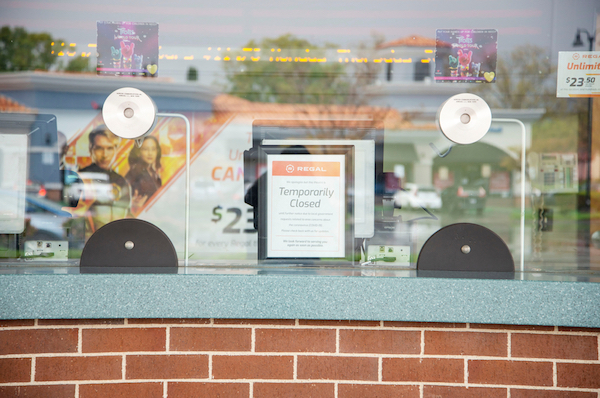In this 4-minute read:
- Essential businesses
- Non-essential businesses
- Gray areas
Due to the coronavirus/COVID-19 pandemic, multiple U.S. states are issuing “stay-at-home” or “shelter-in-place” orders, meaning that people are supposed to stay home unless they have an essential task to handle. This also means that only “essential businesses” are allowed to operate during this time and all other businesses must close down. But how do you know if your business is “essential”?
Womply has made email marketing truly automatic for busy small business owners and all types of independent contractors. Learn more, plus get free reputation monitoring and customer insights when you sign up for Womply Free!
Most state governors haven’t been very clear about what “essential” means, at least not in their initial statements for their state’s shutdown. This has left a lot of business owners concerned about whether or not they can keep operating their businesses.
In this article, we’ll cover which types of businesses are essential, which are not, and which ones might fall into a bit of a gray area.
NOTE: While we can provide general guidelines based on our research, every state is handling the COVID-19 crisis differently, so it’s important for you to confirm with your local authorities.
Which businesses are essential during the coronavirus pandemic “shelter-in-place” directives?
In the short-term, essential businesses are going to be those that help people meet their basic needs: food, hygiene, public safety, and medical facilities. Any business that sells food or hygiene products or takes part in the production or distribution of these products is generally considered an essential business.
Medical practices are also considered essential, but, in several places, there are only certain types of medical care that are allowed to remain operating during this time.
However, as time stretches on, other businesses may be considered essential: auto repair and services, construction, plumbing, HVAC, etc.
This is why these shelter in place orders can be confusing to business owners.
We’ve identified several business types, broken down into three categories, to help you identify if your business is essential.
Public safety
We still need law enforcement and first responders to continue to do their jobs and keep the public safe, which is why the following are essential (though many are severely limiting public access:
- Police stations
- Courthouses
- Fire department
- City/State officials and administration
- Hospitals (also under medical)

Medical
People need medical care. Some states and areas though are only allowing essential medical care, meaning elective surgeries and other “optional” procedures and treatments are not allowed during this time. Check with your state or county’s guide to determine what treatments are allowed at your practice.
- Pharmacies
- Medical practices (only essential and emergency care)
- Dental clinics (only emergency care in several places)
- Hospitals
- Nursing homes and senior residential centers
- Veterinarians (animals need healthcare providers too)
Food and hygiene
Food is a basic need, and therefore, most businesses within the food industry are considered essential at this time. Another thing that is in high demand and necessary for keeping a safe environment are basic hygiene supplies: soap, hand sanitizer, toilet paper, cleaners, etc.
The businesses that fall under this sector include:
- Grocery stores, supermarkets, and pet stores
- Convenience stores and discount stores
- Restaurants (generally only those that offer takeout, curbside, or delivery services)
- Storage warehouses
- Production plants
- Farms
- Distribution center
- Distributors (trucking companies, shipping companies)
- Laundromats and dry cleaners (certain restrictions apply)
Maintenance and repairs
As the pandemic continues on and shelter in place orders last more than a few days, these types of businesses most likely will be considered essential:
- Auto shops and mechanics
- Hardware stores
- Construction (as it relates to essential functions)
- Plumbers
- HVAC
- Home repair companies
- Renting agencies (for homes and businesses)
- Skilled contractors
- Manufacturing and production of supplies that fall under these business types
Other
Some other businesses that don’t fall into the main categories but are still usually considered essential include:
- Utilities and telecommunications
- Transportation services
- Gas stations
- Banks
- Daycare providers (though group daycare is problematic for obvious reasons; be sure to consult with your daycare center)
- Animal shelters
- Garbage collection/sanitation
- Educational institutions (as long as they are able to provide distanced learning)
- Businesses that provide shelters for economically disadvantaged people with necessities
- Funeral homes, crematories, and cemeteries
If your business is related to any of those that we have mentioned so far or allows for any of these essential businesses to operate, then it is probably an essential business. But be sure to check with your local and state guides if you are unsure.
What businesses are considered non-essential during a shelter-in-place order?
We’ve covered several essential business types, but which businesses generally fall under the “non-essential” category?

Any business where the public can gather is likely going to be non-essential, as well as businesses that offer non-essential services and products, like the following:
- Theaters
- Museums
- Gyms and recreation centers
- Salons and spas
- Tattoo and piercing parlors
- Casinos
- Racetracks
- Shopping malls (some stores may be considered essential and may remain open in some areas)
- Bowling alleys
- Arcades
- Sporting and concert venues
- Night clubs
Businesses that fall into a gray area
Some businesses, depending on where you are located, may be considered essential while in other areas they might be deemed non-essential.
One example of this is marijuana dispensaries, which are considered essential in the state of California.
Other businesses that fall into a gray area include:
- Labor unions
- Moving companies
- Marketing agencies
- Home office supply stores
- Firearms/sporting goods stores (deemed essential in some states and prohibited from operating in others; consult your local authorities)
- Construction (for non-essential functions like remodels and building new homes)
- Real estate agencies
- Industrial manufacturing not related to essential businesses
- Retail businesses not in the food or hygiene industry
- Liquor stores
- Bars
- Some public parks (some locales are restricting access to residents of the surrounding area, for example, and some are closed to public access)
Check with your local resources to determine if your business is essential or not.
If you do fall into a gray area or non-essential business category, try to find ways that you can manage and continue business from home, and be sure to keep any contact with the public aligned with your local directives.
Important note: Businesses like salons and tattoo and piercing shops generally cannot offer in-home services during a shelter in place order or they may lose their license.
Go deeper: How to get your business started selling online during COVID-19 / coronavirus
Win new customers and build loyalty with your existing customers with Womply Email Marketing
Womply has made Email Marketing truly automatic for busy small business owners, independent contractors, and sole proprietors. Womply helps you turn customers into regulars and get more repeat business with targeted emails that send automatically when customers transact with you. Build customer loyalty and revenue, and get more repeat business with just a few clicks!
Learn more, plus get free reputation monitoring and customer insights when you sign up for Womply Free!
https://www.nbcnews.com/business/business-news/california-confusion-over-what-businesses-qualify-essential-n1170031
https://www.businessinsider.com/what-is-a-nonessential-business-essential-business-coronavirus-2020-3
https://www.forbes.com/sites/billconerly/2020/03/24/what-is-essential-business-in-a–covid-19-shelter-in-place-order/#f865b395467b